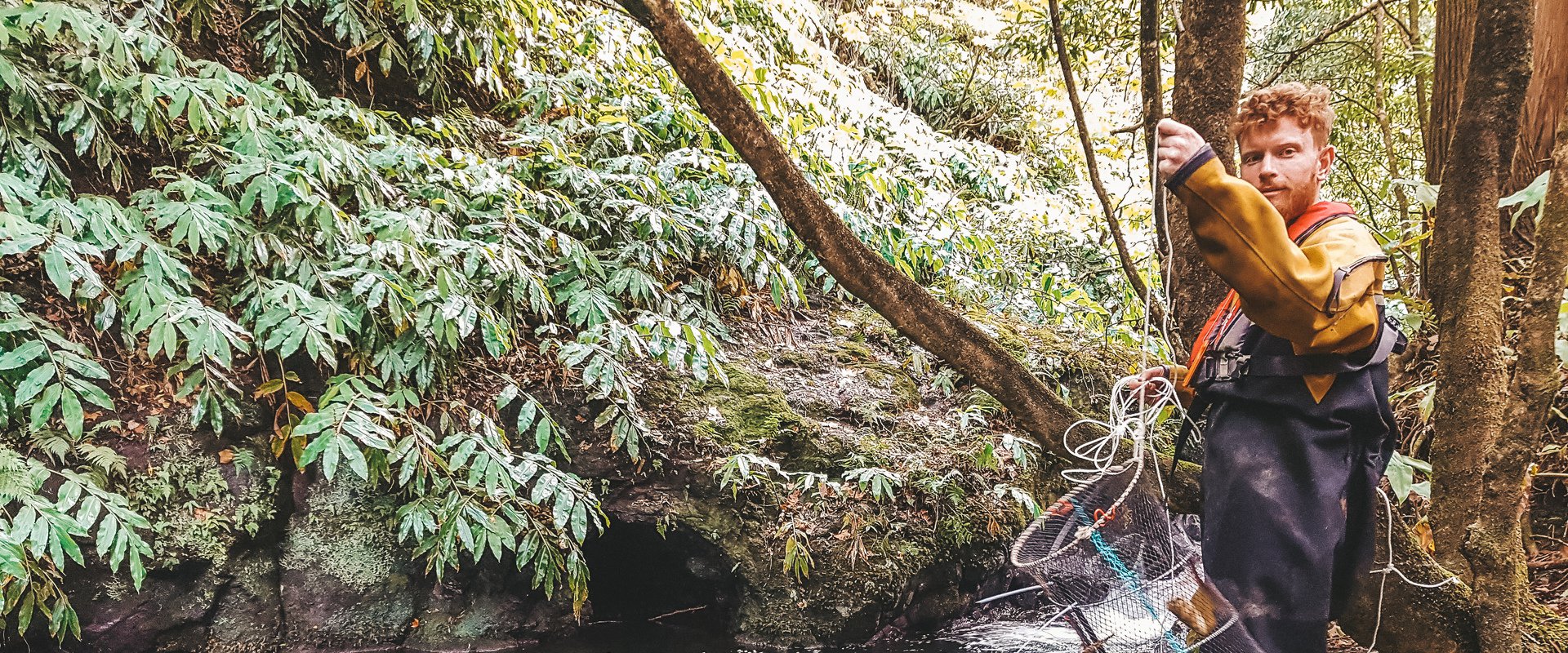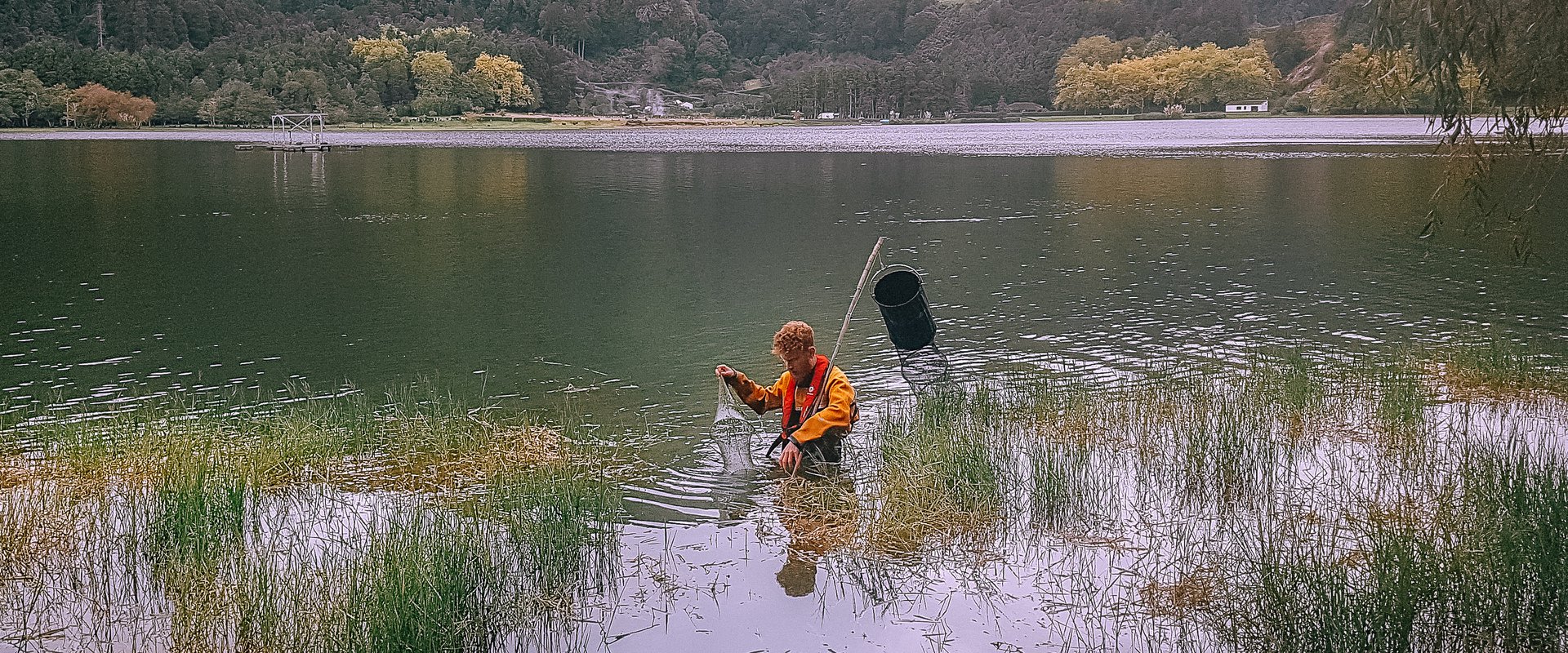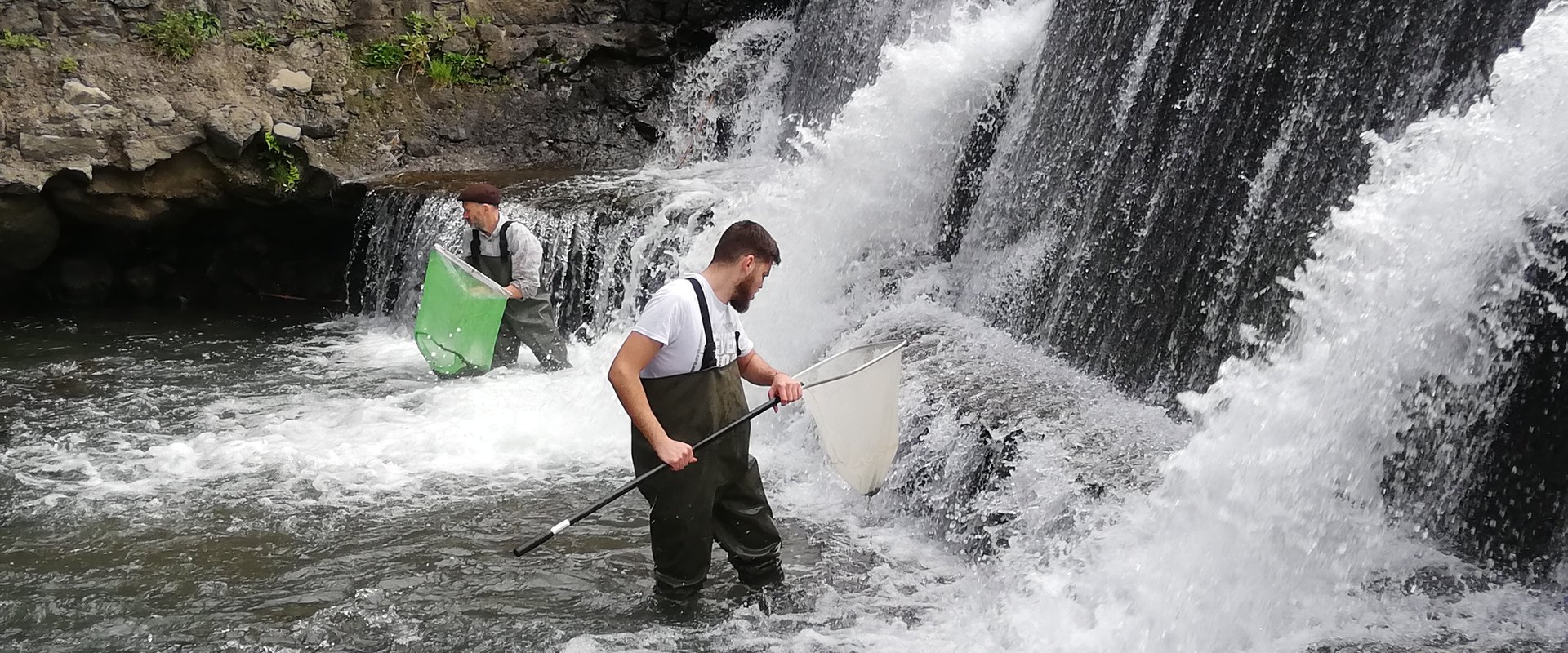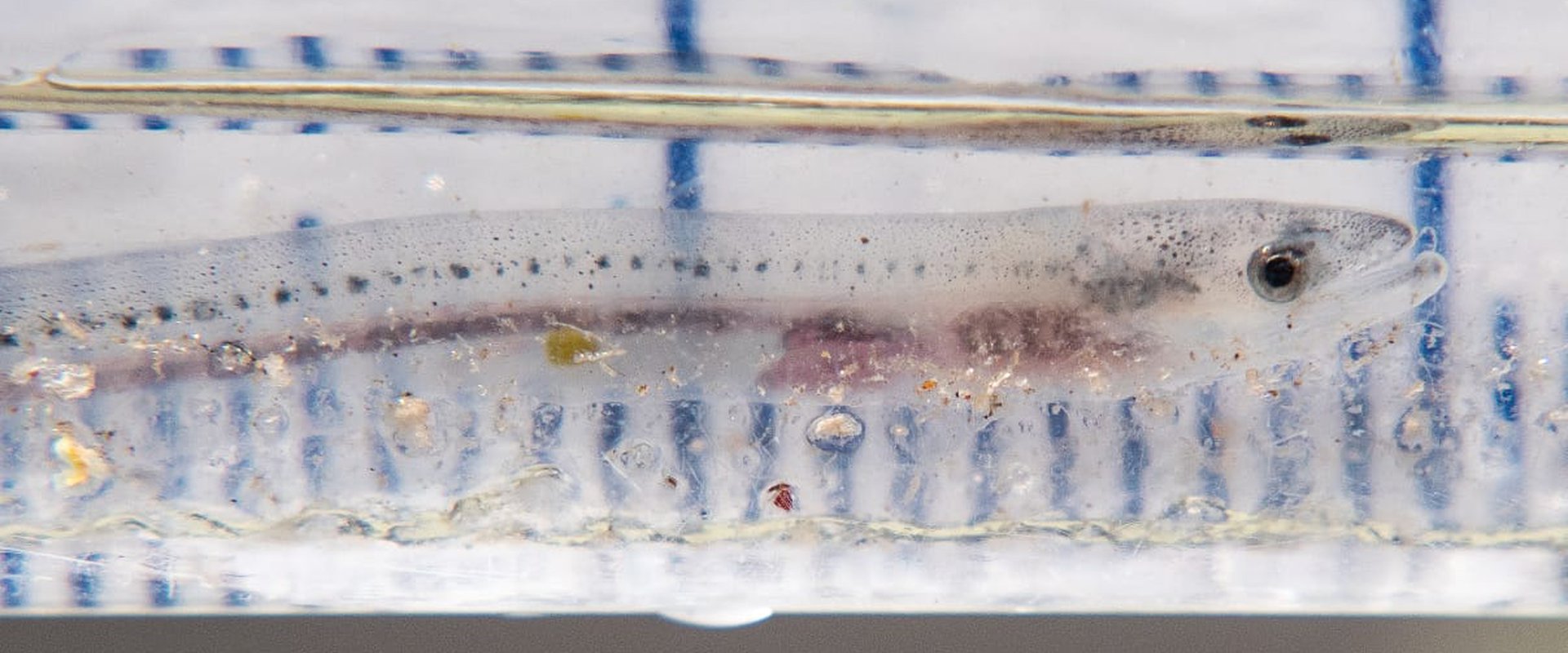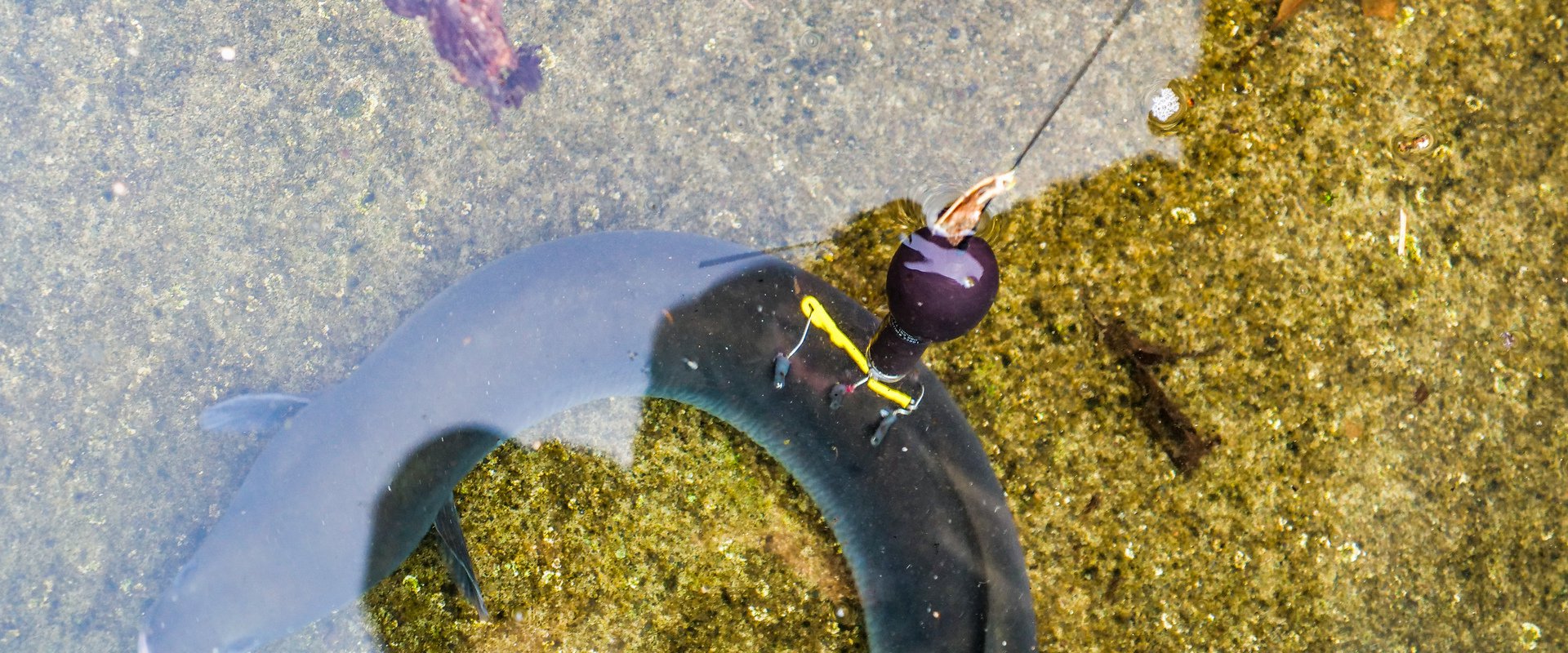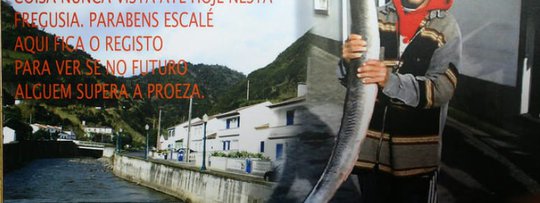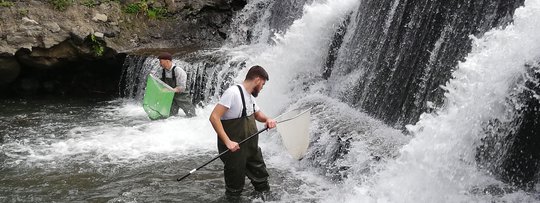EEL Trek
The Eel Trek project aims to complement scientific knowledge about ocean migration and the breeding behavior of the European eel, a species classified as "critically endangered".
It is one of the winners of the 2nd edition of the Fund for the Conservation of Oceans created by the Oceanário de Lisboa and the Oceano Azul Foundation.
The European eel used to be extremely abundant in water courses and estuaries throughout the continent, where it supported important fishing communities and even canning industries. It lives most of its life in freshwater, but upon maturation undertakes one of the most extensive migrations in the animal kingdom. It swims out to sea and makes a one-year, non-feeding, trek of up to 6,000km across the Atlantic Ocean to the Sargasso Sea, where it spawns and dies. Its larvae drift for up to 2 years in the ocean currents, until they reach the European shores. They then metamorphose into the glass eel stage and swim upstream, looking for suitable locations to settle and grow. Sadly, this fascinating but elusive species is now critically threatened with extinction, from the accumulated pressures of barriers to migration, habitat destruction and overfishing. Learn more about the eels.
EEL Trek aims to tag and release European eels in the Azores to be able to follow their path to the Sargassum Sea, something that has never been done. Building on this scientific breakthrough, we want to raise awareness to the plight of the European eels. In addition, we would like to turn the Azores into an eel-friendly region. Given the dire situation of the species, an healthy population in the Azores can be crucial. Read more about the project.
Visit the News section to keep up with the latest developments in the project. Or go straight to the Results section to download the reports and materials we have produced.
We are fully committed to share the knowledge about this species. We welcome request for talks from schools (including the university), government departments, environmental organizations, river and lake users (farmers, municipalities) and sports and professional fishers associations. We also look forward to receive requests for participation in the field work from high school students, and are open to support university projects and MSc thesis.
